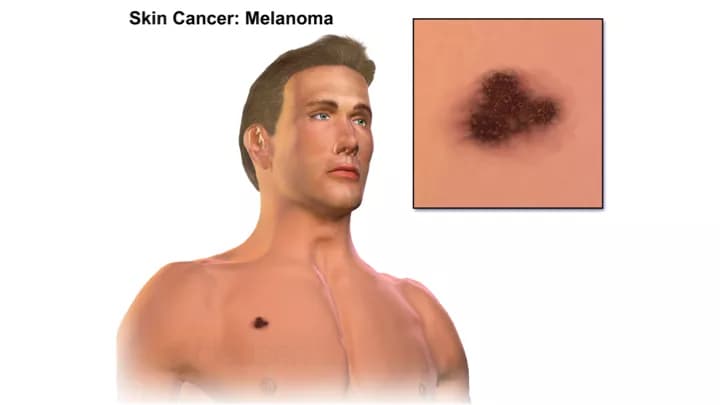
Concerns Raised Over Accuracy Of Melanoma Diagnoses
Concerns over the accuracy of melanoma diagnoses are raised in a study of US pathologists published by The BMJtoday.
The results show that diagnoses can vary among pathologists, particularly for cases in the middle of the disease spectrum, suggesting the potential for both overdiagnosis and underdiagnosis.
Melanoma is a type of skin cancer that develops from skin cells called melanocytes. Diagnosis relies on visual assessment of skin samples (biopsies) under a microscope by a pathologist, but the reliability of the criteria used to diagnose these skin lesions have never been established with rigorous standards.
Previous studies have suggested high levels of diagnostic disagreement among pathologists when interpreting melanocytic lesions, but results are conflicting.
So a team of researchers, led by Professor Joann Elmore at the University of Washington School of Medicine in Seattle, set out to measure the accuracy and reproducibility of pathologists' diagnoses of melanocytic skin lesions.
The study was inspired by Dr Elmore's experience as a patient undergoing a skin biopsy, which resulted in three different independent interpretations, ranging from benign to invasive melanoma. Ten years later she is healthy and doing research on the topic.
A total of 187 practicing pathologists from 10 US states were randomised to independently interpret the same set of skin biopsy cases on two separate occasions (phases 1 and 2), at least eight months apart.
Each case had been independently reviewed by a panel of three experienced skin pathologists and a consensus reference diagnosis reached.
Participants' interpretations were assigned to one of five classes: I, e.g. mild atypia; II, e.g. moderate atypia; III, e.g. severe atypia or melanoma in situ; IV, e.g. early invasive melanoma; and V, e.g. invasive melanoma.
Accuracy was measured by comparing the pathologists' interpretations with the panel's consensus reference diagnosis.
The highest levels of accuracy were found for class I mild lesions (92%) and class V high stage invasive melanoma (72%) -- these cases are at the polar ends of the disease spectrum.
In contrast, interpretations for cases in the middle of the spectrum had noticeably lower accuracy, as less than half of the diagnoses were in concordance with the reference diagnosis; class II moderately atypical lesions (25%); class III severely atypical lesions and melanoma in situ (40%); and class IV early stage invasive melanoma (43%).
Pathologists' interpretations of the same case on two occasions also lacked reproducibility for cases in the middle of the spectrum.
At a population level, the researchers estimate that 83% of melanocytic skin biopsy diagnoses would have their diagnosis verified if reviewed by a consensus reference panel of experienced pathologists, with 8% of cases overinterpreted by the initial pathologist and 9% under-interpreted.
The authors outline some study limitations which could have introduced bias, but strengths included a large sample size and use of three reference standards to estimate accuracy.
They also point out that, in clinical practice, pathologists may have the opportunity to review more slides, obtain second opinions from colleagues, or request additional tests before making a diagnosis.
These results show that diagnoses ranging from moderately atypical lesions to early stage invasive melanoma are neither accurate nor reproducible, say the authors.
Efforts to improve clinical practice should include use of a standardized classification format, acknowledging uncertainty of specific diagnoses in pathology reports, and development of more sophisticated diagnostic tools to support pathologists, they conclude.
Materials provided by BMJ. Note: Content may be edited for style and length.
Disclaimer: DoveMed is not responsible for the accuracy of the adapted version of news releases posted to DoveMed by contributing universities and institutions.
Primary Resource:
Elmore, J. G., Barnhill, R. L., Elder, D. E., Longton, G. M., Pepe, M. S., Reisch, L. M., ... & Tosteson, A. N. (2017). Pathologists’ diagnosis of invasive melanoma and melanocytic proliferations: observer accuracy and reproducibility study. bmj, 357, j2813. DOI: 10.1136/bmj.j2813
Related Articles
Test Your Knowledge
Asked by users
Related Centers
Related Specialties
Related Physicians
Related Procedures
Related Resources
Join DoveHubs
and connect with fellow professionals

0 Comments
Please log in to post a comment.